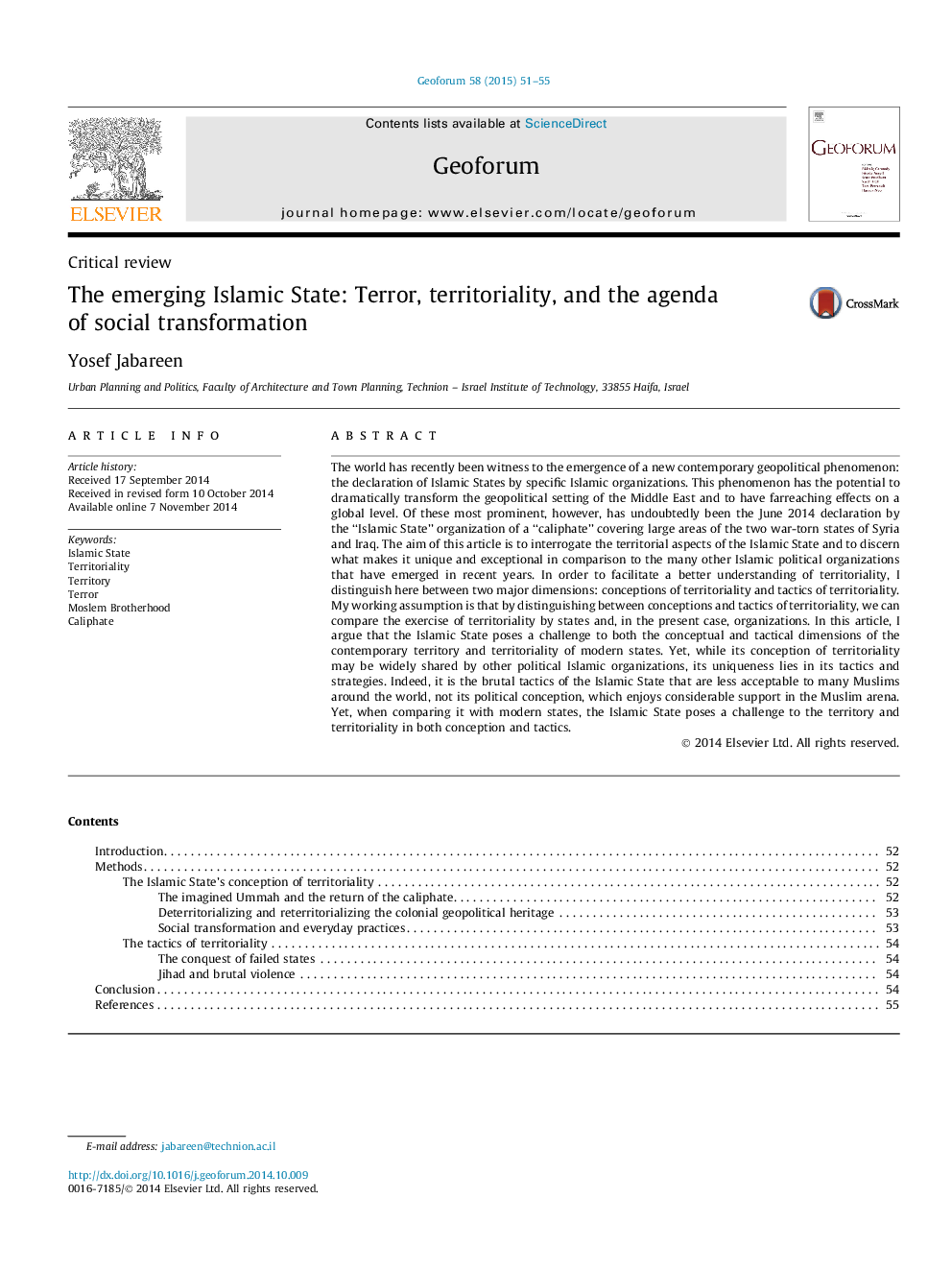| کد مقاله | کد نشریه | سال انتشار | مقاله انگلیسی | نسخه تمام متن |
|---|---|---|---|---|
| 5073866 | 1477131 | 2015 | 5 صفحه PDF | دانلود رایگان |
- The declaration of Islamic States by some organizations presents a new geopolitical phenomenon.
- The declaration of Islamic States (IS) challenges the modern concepts of territoriality.
- The IS's conception of territoriality is not exceptional when comparing to political Islamic organizations.
- The IS's tactics is exceptional compared to other Islamic political Islamic organizations.
- The IS imagines the ummah of Islam as an alternative to nationalism and modern states.
The world has recently been witness to the emergence of a new contemporary geopolitical phenomenon: the declaration of Islamic States by specific Islamic organizations. This phenomenon has the potential to dramatically transform the geopolitical setting of the Middle East and to have farreaching effects on a global level. Of these most prominent, however, has undoubtedly been the June 2014 declaration by the “Islamic State” organization of a “caliphate” covering large areas of the two war-torn states of Syria and Iraq. The aim of this article is to interrogate the territorial aspects of the Islamic State and to discern what makes it unique and exceptional in comparison to the many other Islamic political organizations that have emerged in recent years. In order to facilitate a better understanding of territoriality, I distinguish here between two major dimensions: conceptions of territoriality and tactics of territoriality. My working assumption is that by distinguishing between conceptions and tactics of territoriality, we can compare the exercise of territoriality by states and, in the present case, organizations. In this article, I argue that the Islamic State poses a challenge to both the conceptual and tactical dimensions of the contemporary territory and territoriality of modern states. Yet, while its conception of territoriality may be widely shared by other political Islamic organizations, its uniqueness lies in its tactics and strategies. Indeed, it is the brutal tactics of the Islamic State that are less acceptable to many Muslims around the world, not its political conception, which enjoys considerable support in the Muslim arena. Yet, when comparing it with modern states, the Islamic State poses a challenge to the territory and territoriality in both conception and tactics.
Journal: Geoforum - Volume 58, January 2015, Pages 51-55
